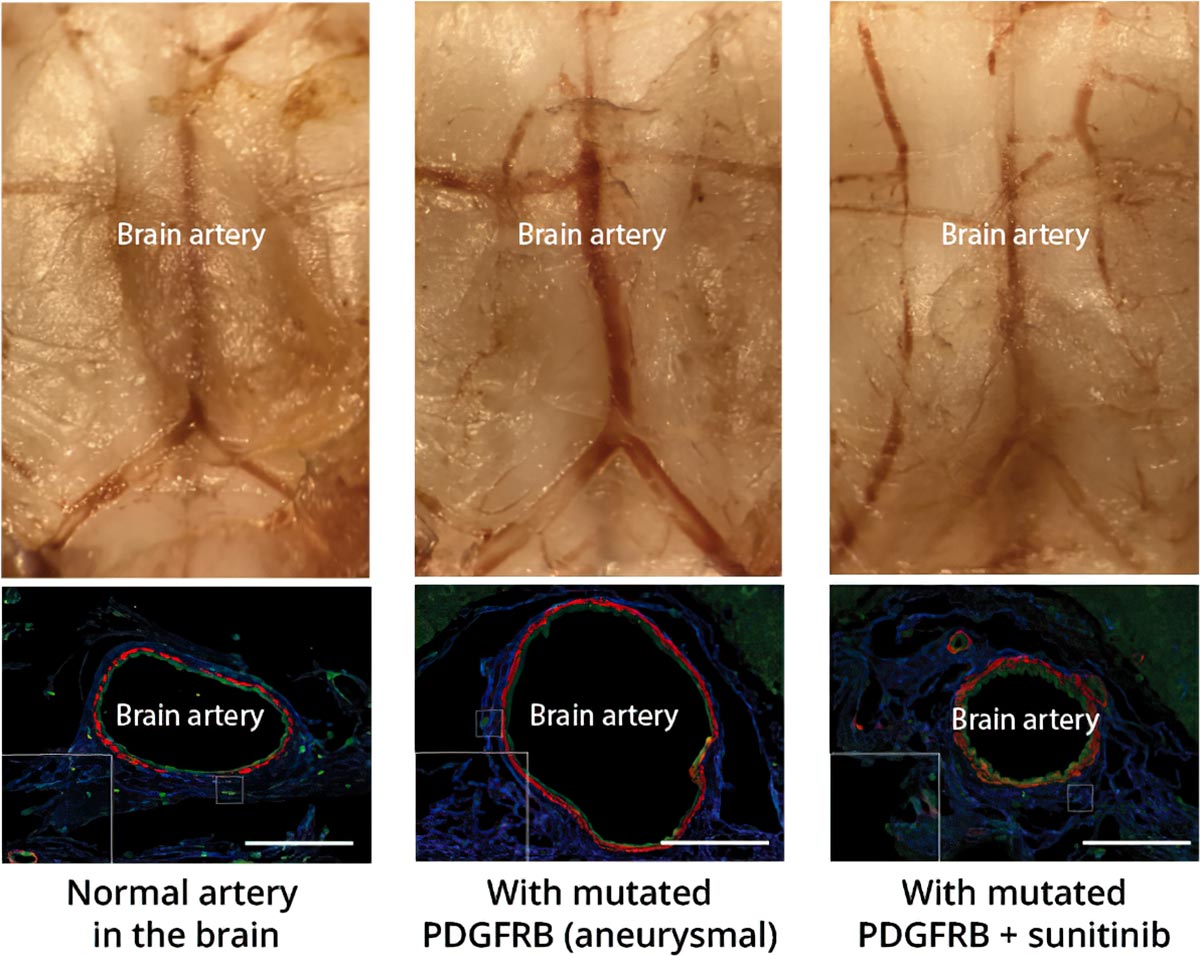Revealing the Genetic Mutations Linked to Brain Aneurysms

Researchers at the RIKEN Center for Brain Science in Japan have identified mutations that contribute to the formation of intracranial aneurysms, which are weakened blood vessels in the brain that can burst, potentially leading to severe consequences. Their study, published in Science Translational Medicine, highlights the discovery of six common gene mutations associated with both fusiform and saccular types of aneurysms. Notably, over 90% of analyzed aneurysms displayed mutations in a set of 16 genes, suggesting that somatic mutations could be a significant trigger for these conditions.
Utilizing a mouse model, the team injected a virus carrying a mutant gene into a specific artery, resulting in aneurysm-like swelling. This condition was successfully treated with sunitinib, a drug that inhibits the abnormal activity of the mutant gene. This breakthrough marks the first non-surgical treatment option for intracranial aneurysms, emphasizing the potential for drug therapies to manage this condition.
The research also underscores the importance of detection, as many aneurysms remain undiagnosed until they rupture. Improved screening methods could enhance early diagnosis, making pharmacological treatments even more critical. Further studies are planned to explore the efficacy of these treatments in humans.
https://instegro.net/revealing-the-genetic-mutations-linked-to-brain-aneurysms/?fsp_sid=82437
Yorumlar
Yorum Gönder